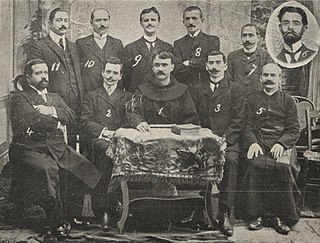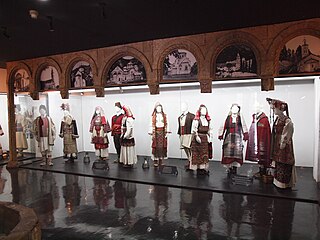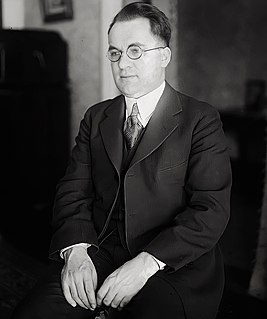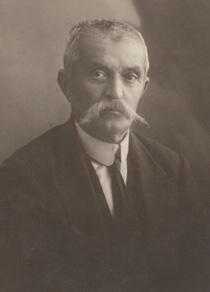
The Culture of Albania is a term that embodies the artistic, culinary, literary, musical, political and social elements that are representative of Albania and Albanians. Albanian culture has been considerably shaped by the geography and history of Albania. It grew from that of the Illyrians, with their pagan beliefs and specific way of life in the wooded areas of far Southern Europe. Albanian culture has also been influenced by the Ancient Greeks, Romans, Byzantines and Ottomans.

Kavajë is a municipality centrally located in the Western Lowlands region of Albania. It borders Durrës to the north 17 km (11 mi), Tiranë to the east 27 km (17 mi) and Rrogozhinë to the south 15 km (9 mi). To the west lies the Adriatic Sea. Based on the 2011 Census, the municipality had a population of 40,094 inhabitants, although the Civil Registry inferred the total number of inhabitants to be 79,556. The overall surface area is 199.00 square kilometres (76.83 sq mi).
Cape Verdean Americans are an ethnic group of Americans whose ancestors were Cape Verdean. In 2010, the American Community Survey stated that there were 95,003 Americans living in the US with Cape Verdean ancestors.

Sami bey Frashëri was an Ottoman Albanian writer, philosopher, playwright and a prominent figure of the Rilindja Kombëtare, the National Renaissance movement of Albania, together with his two brothers Abdyl and Naim. He also supported Turkish nationalism against its Ottoman counterpart, along with secularism against theocracy.

The Congress of Manastir was an academic conference held in the city of Manastir from November 14 to 22, 1908, with the goal of standardizing the Albanian alphabet. November 22 is now a commemorative day in Albania, Kosovo and North Macedonia, as well as among the Albanian diaspora, known as Alphabet Day. Prior to the Congress, the Albanian language was represented by a combination of six or more distinct alphabets, plus a number of sub-variants.
Besa is an Albanian cultural precept, usually translated as "faith" or "oath", that means "to keep the promise" and "word of honor". The concept is synonymous, and, according to Hofmann, Treimer and Schmidt, etymologically related, to the Classical Latin word fides, which in Late Ancient and Medieval Latin took on the Christian meaning of "faith, (religious) belief" today extant in Romance languages, but which originally had an ethical/juridical scope. The Albanian adjective besnik, derived from besa, means "faithful", "trustworthy", i.e. one who keeps his word. Besnik for men and Besa for women continue to be very popular names among Albanians.
Besa Kokëdhima, also known mononymously as Besa, is an Albanian singer and songwriter.
Kadri Gjata (1865–1912) was an Albanian patriot, writer and educator. He was awarded posthumously with the Honor of the Nation medal and the title Martyr of the Nation.

Kosovo is a partially recognized state and disputed territory located in the Balkan Peninsula in Southeastern Europe. The majority of Kosovars are ethnically Albanian. Kosovo has an expansive cultural heritage, including monuments, clothing items, museums, and traditional food.

Costa Chekrezi, also known as Constantin Anastas Chekrezi was an Albanian patriot, historian, and publicist.

Vatra is an association of Albanian Americans, created in 1912, that has historically protected the rights of the Albanians in the United States, as well as has endeavored in lobbying with the United States Congress about the rights of the Albanians throughout the world.

Jani Vruho (05.08.1863-15.09.1931) was an Albanian publisher and nationalist figure.
Albanian Roots is a non-religious, Non-Profit Organization of young Albanian Professionals whose primary function is to strengthen the Albanian community by integrating the Albanians with each other and their respective adopted countries throughout the whole Albanian diaspora. Albanian Roots works primarily to build a strong relationship with other Albanian communities in order to share a more dynamic and cohesive partnership. Albanian Roots focuses on promoting the Albanian culture and heritage to the younger generations by improving the community in organizing events such as network events, picnics, art shows, festivals and its main event the Albanian Roots Parade in the Immigrants Day Parade in New York City. Albanian Roots focuses on "cultural activities movements" as well as performing activist campaigns through a network of delegates, advisers, and analysts.

Dielli is a newspaper published in the United States by Vatra, the Pan-Albanian Federation of America.
Besa-Besën was an organization of Albanian emigrants in Boston, Massachusetts.

Kristo Kirka was an Albanian patriot, diplomat, politician, and activist. He is one of the most contributing figures of the Albanian national cause.
Julia Gjika is an Albanian-born poet living in the United States. She is one of the few writers publishing in the Albanian language and writes poetry as well working as a journalist. Her poems have been praised by her peers and have been included in several publications of collected works.
The Second Congress of Manastir was an Albanian congress held on 2–3 April 1910 in Manastir, back then Ottoman Empire, today's Bitola in the Republic of Macedonia. It dealt with the challenges that the Albanian language and schools faced at the time within the context of the empire, and the platform to overcome them.

The Congress of Elbasan, also known between Albanians as the Congress of the Albanian schools, was held from 2 to 8 September 1909 in Elbasan, today's Albania, back then part of the Vilayet of Monastir of the Ottoman Empire. The congress, sponsored by the local Bashkimi literary club, was attended by 35 delegates from central and southern Albania.

Faik Konica was an important figure of Albanian language and culture in the early decades of the twentieth century. Prewar Albanian minister to Washington, his literary review "Albania" became the focal publication of Albanian writers living abroad. Faik Konica wrote little in the way of literature, but as a stylist, critic, publicist and political figure he had a tremendous impact on Albanian writing and on Albanian culture at the time.












